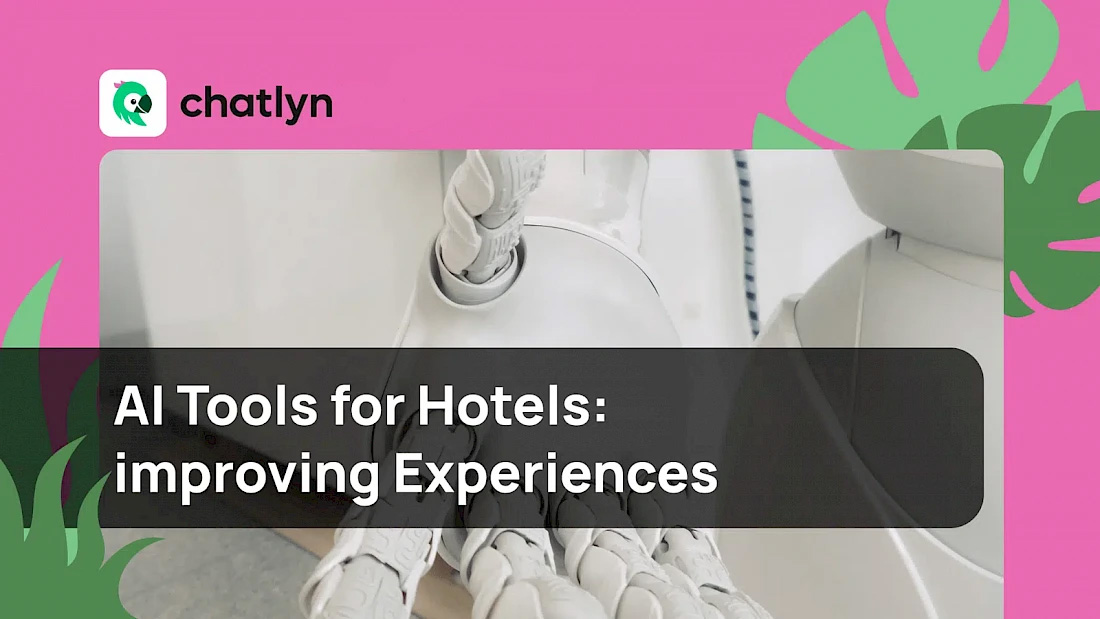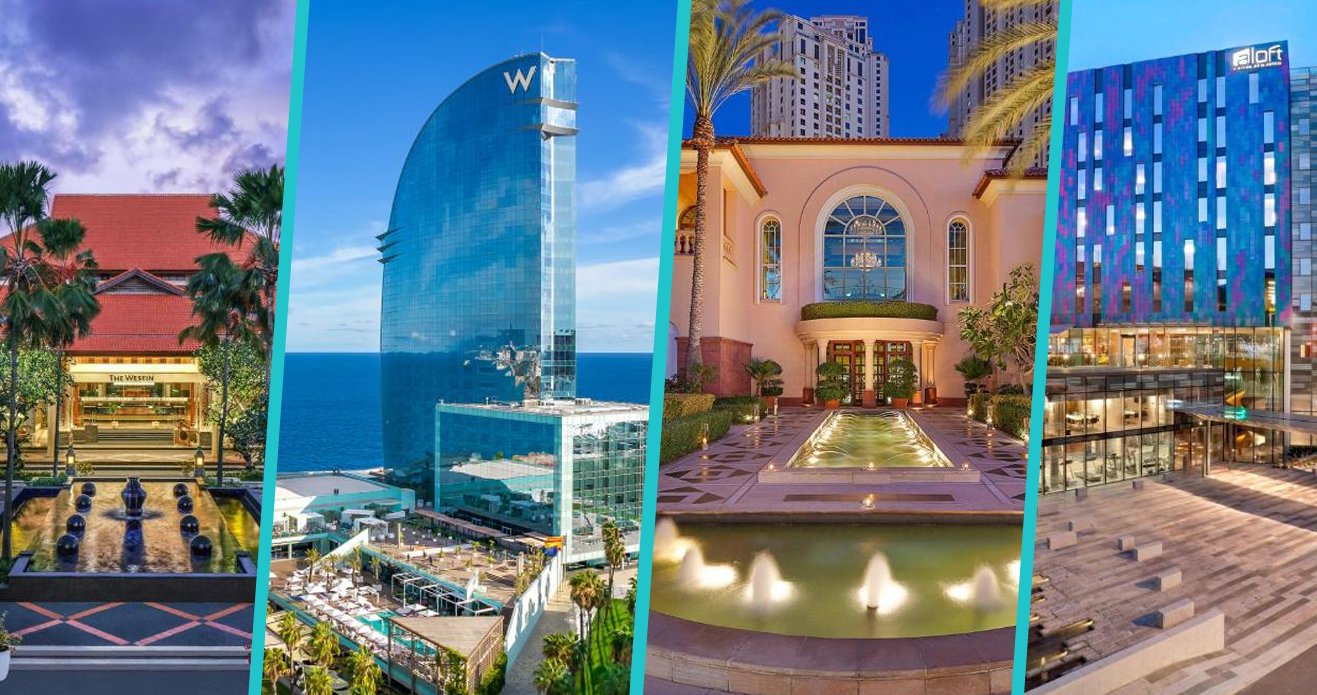

Artificial intelligence (AI) tools have transformed the way hotels operate and cater to guests. With advanced software and systems, AI technology offers hotels the opportunity to streamline operations, optimize revenue management, and provide personalized guest services. This article explores the wide range of applications, benefits, and examples of AI tools in the hotel industry.
Understanding the Role of AI in Hotels
What is AI in the Hotel Industry?
In the modern hotel industry, AI has emerged as a game-changer, revolutionizing operations and elevating guest experiences. AI, or Artificial Intelligence, refers to the ability of machines to imitate human intelligence and perform tasks that typically require human intervention. Through advanced algorithms, machine learning, and data analysis, AI enables hotels to automate processes, make data-driven decisions, and deliver personalized services to guests.
How Can AI be Used in Hotels? 5 Examples of AI Tools for Hotels
AI technology finds various applications in hotels, transforming the way they operate and interact with guests. We will dive deeper into this topic but here are some real examples of AI in the hotel industry:
Chatbots and Virtual Assistants: Hotels deploy AI-powered chatbots and virtual assistants to provide instant responses to guest inquiries, handle reservations, and offer personalized recommendations. These intelligent systems can simulate human-like conversations, ensuring efficient customer service round the clock. One of our recommendations here is the powerful AI chatbot and easy installation.
Voice-Activated Room Controls: AI technology enables voice-activated assistants in hotel rooms, allowing guests to control lighting, temperature, entertainment systems, and other amenities through voice commands. This hands-free and intuitive interface enhances guest comfort and convenience.
Predictive Analytics for Revenue Management: AI algorithms analyze historical data, market trends, and other factors to optimize revenue management strategies. By predicting demand patterns, pricing fluctuations, and guest preferences, hotels can maximize occupancy rates, room rates, and overall revenue.
Personalized Guest Experiences: AI systems collect and analyze guest data to offer personalized experiences. This includes tailoring room amenities, suggesting local attractions based on guest preferences, and providing customized offers and promotions.
Intelligent Virtual Concierges: AI-powered concierge systems can assist guests in various tasks, such as check-in/out, booking services, and answering questions. These virtual concierges offer 24/7 support, ensuring guests receive prompt assistance and enhancing overall satisfaction. Like our AI Virtual Concierge.
Benefits of Implementing AI Tools in Hospitality
Implementing AI tools strategically in the hospitality industry brings numerous benefits for hotels:
Enhanced Efficiency: AI automates repetitive tasks, streamlines operations, and reduces manual errors, resulting in improved efficiency and productivity across departments.
Personalized Guest Experiences: AI enables hotels to deliver highly personalized experiences by analyzing guest preferences, behavior, and historical data. This fosters guest satisfaction, loyalty, and positive reviews.
Data-Driven Decision-Making: AI tools provide hotels with valuable insights and analytics, enabling data-driven decision-making in areas such as revenue management, marketing campaigns, and operational improvements.
Improved Revenue Management: AI algorithms optimize pricing strategies, room allocations, and inventory management, helping hotels maximize revenue and profitability.
24/7 Guest Support: AI-powered chatbots and virtual assistants offer round-the-clock guest support, ensuring quick responses and personalized assistance, even during non-business hours.
Enhancing Operational Efficiency with AI Tools
Automation of Daily Operations
Automation is a key driver of operational efficiency in the hotel industry. By leveraging AI technology, hotels can automate routine tasks and streamline operations, leading to improved efficiency and guest satisfaction.
Robotic Servers: One prominent example of AI-powered automation is the introduction of robotic servers. These innovative machines are designed to streamline the dining experience by efficiently and accurately serving food and beverages. Robotic servers can navigate through crowded spaces, deliver orders promptly, and minimize the risk of errors, freeing up human staff to focus on delivering personalized guest experiences.
Intelligent Computer Systems: AI-powered intelligent computer systems are another aspect of automation in hotels. From voice-activated assistants to automated room control systems, these intelligent systems assist hotel staff in delivering efficient services. Voice-activated assistants allow guests to control various aspects of their room, such as temperature, lighting, and entertainment, through simple voice commands. Automated room control systems optimize energy usage and ensure guest comfort by adjusting settings based on occupancy and preferences.
How can AI automate routine tasks in hotels?
AI technology enables hotels to automate routine tasks such as check-ins, check-outs, and concierge services. Through intelligent algorithms, these tasks can be efficiently managed, reducing wait times and enhancing guest satisfaction. AI-powered systems can handle inquiries, process reservations, and provide personalized recommendations, allowing staff to focus on more complex guest interactions and providing a higher level of service.
What are the benefits of AI-powered automation for hotels?
The implementation of AI-powered automation in hotels offers several benefits:
Staff Productivity: By automating routine tasks, AI tools free up hotel staff from manual and repetitive activities. This allows them to allocate their time and expertise to more critical areas of guest service, improving overall productivity.
Error Reduction: Automation reduces the risk of human errors in tasks such as data entry, reservation processing, and order management. AI systems can perform these tasks with a high level of accuracy, minimizing the occurrence of mistakes and ensuring a seamless guest experience.
Enhanced Efficiency: Automation streamlines processes, reduces waiting times, and improves operational efficiency. With AI-powered systems handling routine tasks, hotels can provide faster and more efficient services, resulting in increased guest satisfaction.
Cost Savings: By automating daily operations, hotels can optimize resource allocation and reduce operational costs. AI tools can help in optimizing staff schedules, energy consumption, inventory management, and other aspects of hotel operations, leading to cost savings.
Revenue Management Systems
AI-powered revenue management systems have revolutionized pricing strategies in the hotel industry.
*Business Intelligence (BI) tools like InTouch BI, OTA Insight, Scoreboard by Duetto, ProfitSage by ProfitSword
How do AI-powered revenue management systems optimize pricing strategies?
Business Intelligence (BI) tools offer advanced data analytics, providing insights into market trends, demand patterns, and competitor pricing.
What advantages do revenue management systems bring to hotel operations?
By leveraging these tools, hotels can optimize pricing strategies, maximize revenue potential, and maintain a competitive edge in the market.
Guest Experience Systems
Delivering exceptional guest experiences is a top priority for hotels, and AI tools play a crucial role in achieving this goal.
How can AI-powered guest experience systems personalize services for guests?
AI-powered guest experience systems, such as chatlyn.com, offer a range of features to personalize services for guests. chatlyn.com is a hotel guest experience software that leverages AI technology to streamline communication and enhance guest interactions. Through its advanced algorithms and data analysis, chatlyn.com can understand guest preferences, anticipate their needs, and provide tailored recommendations, ensuring a personalized and memorable stay.
What impact do guest experience systems have on guest satisfaction and loyalty?
Guest experience systems, like chatlyn.com, have a significant impact on guest satisfaction and loyalty. By utilizing AI technology, chatlyn.com enables hotels to offer seamless and personalized interactions across multiple communication channels. Guests can receive prompt and accurate responses to their inquiries, make requests, and receive recommendations in real-time. This level of responsiveness and personalization enhances guest satisfaction and fosters loyalty, leading to positive reviews, repeat bookings, and increased revenue for hotels.
What advantages do guest experience systems bring to hotel reputation?
By incorporating AI-powered guest experience systems, hotels can elevate the quality of guest interactions, create memorable experiences, and build strong relationships with their guests. chatlyn.com, as an omnichannel inbox for hotelsand guest experience management platform, provides a centralized solution for managing guest communication across various channels, such as messaging apps, social media, and email. This unified approach ensures that no guest message goes unanswered and allows hotel staff to provide consistent and personalized service throughout the guest journey.
Discover the power of AI in guest experience management with chatlyn.com. This comprehensive platform combines AI technology, advanced communication features, and data analytics to optimize guest interactions and deliver exceptional experiences. Elevate your hotel's guest satisfaction and loyalty by integrating chatlyn.com into your operations and harnessing the capabilities of AI-powered guest experience systems.
Elevating Guest Experiences through AI
AI-Powered Websites
AI-powered websites provide seamless browsing experiences, intuitive navigation, and personalized recommendations.
How do AI-powered websites enhance guest engagement?
These websites analyze user behavior, preferences, and past interactions to offer customized content, promotions, and offers.
What features do AI-powered websites offer for personalized experiences?
By delivering personalized experiences, AI-powered websites enhance guest engagement, drive conversions, and foster long-term relationships with guests.
AI-Powered Booking Tools and Software
AI-powered booking tools and software have revolutionized the reservation process in the hospitality industry. These tools leverage AI algorithms to analyze customer data, preferences, and historical patterns to provide personalized recommendations and optimize the booking experience. By utilizing machine learning and predictive analytics, AI-powered booking tools can streamline the reservation process, ensuring efficiency and accuracy.
How can AI-powered booking tools enhance the booking process for guests?
With AI-powered booking tools, guests can enjoy a seamless and intuitive booking experience. These tools can offer real-time availability, personalized recommendations based on previous stays or preferences, and even suggest additional services or upgrades tailored to the guest's needs.
What benefits do AI-powered booking tools offer to hotels?
By providing a customized and user-friendly interface, AI-powered booking tools enhance guest satisfaction and increase conversion rates.
For hotels, AI-powered booking tools bring numerous advantages. They automate the booking process, reducing the need for manual intervention and streamlining operations. By leveraging AI algorithms, hotels can optimize room allocation, pricing strategies, and revenue management, ultimately maximizing occupancy rates and revenue potential. Additionally, AI-powered booking tools provide valuable insights and data analytics to help hotels understand guest preferences, market trends, and performance metrics, enabling informed decision-making and targeted marketing strategies.
Intelligent Computer Systems
Voice-activated assistants, automated room control systems
Intelligent computer systems, including voice-activated assistants, are transforming the guest experience within hotel rooms. Guests can control various aspects of their room, such as lighting, temperature, and entertainment, through voice commands.
How can intelligent computer systems enhance guest comfort and convenience?
AI-driven room control systems offer personalized settings based on guest preferences and provide a seamless and convenient stay.
What are the benefits of integrating AI into room control systems?
By integrating AI into room control systems, hotels can enhance guest comfort, increase operational efficiency, and differentiate themselves in a competitive market.
Optimizing Revenue Management with AI
Hyperdynamic Pricing Strategies
Hyperdynamic pricing strategies utilize AI algorithms to analyze real-time data from various sources, including social media trends, user behavior, and market conditions.
*Examples: AI-driven pricing algorithms that analyze social media trends, user data, and market conditions to maximize earning potential
How do hyperdynamic pricing strategies help hotels maximize revenue?
These algorithms dynamically adjust pricing to optimize revenue based on demand fluctuations, competitor analysis, and other factors.
What advantages do AI-driven pricing algorithms offer over traditional pricing strategies?
By leveraging hyperdynamic pricing, hotels can maximize their earning potential, increase occupancy rates, and adapt to market changes more effectively than traditional pricing strategies.
Conclusion: The Future of AI in Hotels
In conclusion, AI tools have become essential in driving the success of hotels. From streamlining operations to enhancing guest experiences, the utilization of AI in the hospitality industry offers unprecedented opportunities for growth and innovation. To unlock the full potential of AI tools and learn about the latest advancements, we encourage you to explore our article, "Best AI Hotel Chatbot" Embrace the power of AI and embark on a transformative journey towards excellence in the hotel industry.







